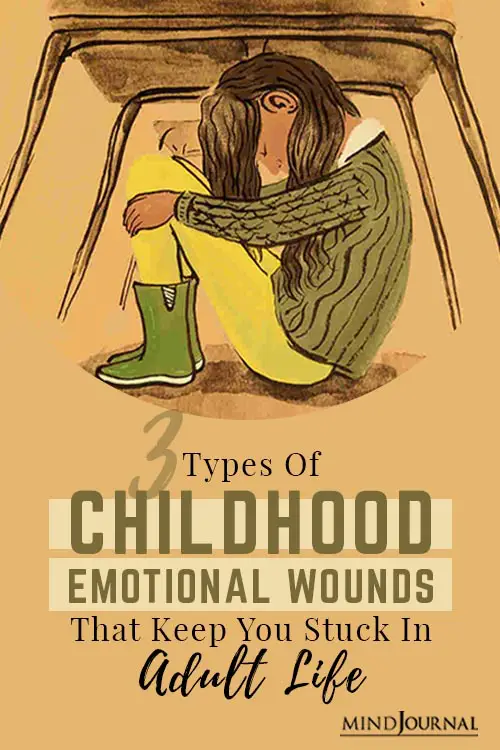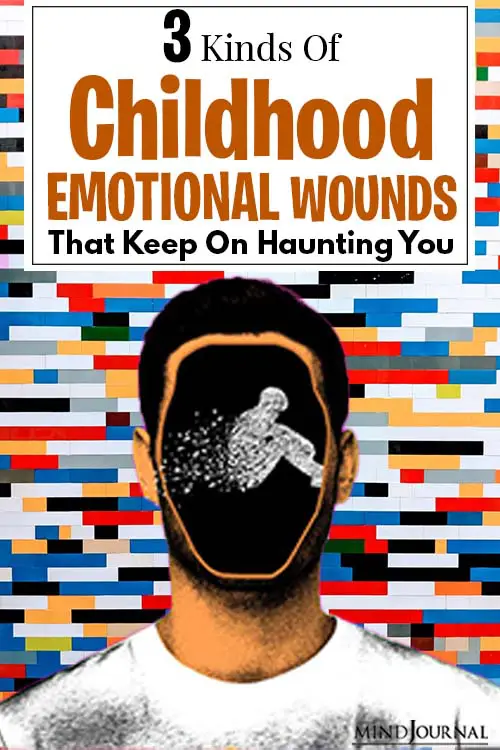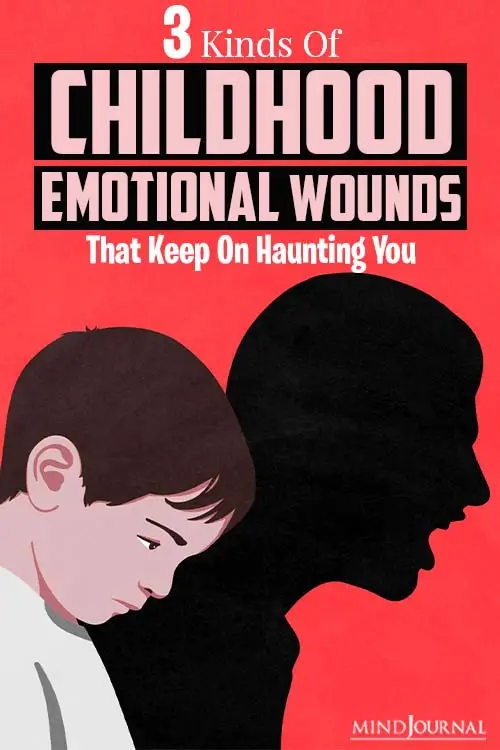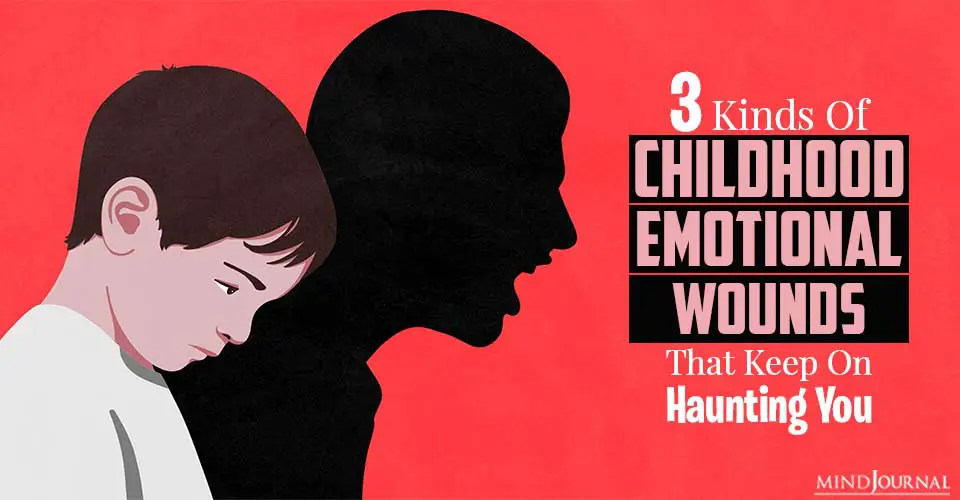People say that you should never think too much about your past, and let it be because you cannot change it. They also say that there’s no point in thinking about stuff that has happened before, and you should always focus on the present, and your past doesn’t define who you are.
What if you want to move on from your past, but some unresolved emotional wounds in your childhood are preventing you from doing so? What then?
All the things that you have experienced in your past have shaped you to be who you are today, so how is it possible to entirely forget all of it, and simply just move on?
If you have experienced emotional pain, and emotional wounds in the past, even today it can be difficult to just let them go, and forget all about them. If you don’t treat these wounds properly, and just put a band-aid on them, it is bound to keep hurting you over and over again.
The emotional wounds that have been inflicted on you in your childhood will continue to reside in your unconscious mind.
Here Are 3 Types Of Emotional Wounds In Childhood That Keep You Stuck
1. Emotional wounds that are related to your independence.
Emotional wounds associated with independence tend to crop up when someone in your life tries to dominate you, and control your freedom. If you have given someone a very important place in your life, depending on the kind of person they are, they might end up misusing it, and try to curb your freedom, just because they want to, and they think that they should. This can end up striking a huge blow to your sense of independence, and personal space.
As a child, if your freedom has been severely limited by your parents, and your decision-making capabilities have been questioned time and again, it will make you feel unsure about yourself, even when you are an adult. This can also happen if someone continuously disagrees with you, rejects you, and demands answers from you even for the smallest, and harmless things. Another vital reason for this is also when someone makes you feel incompetent, incapable, and useless.
These harsh emotional wounds in your childhood can have a massive impact on your psyche, even when you have stepped into your adulthood. You might struggle when it comes to making decisions, and also when you need to take initiative about something. This results in you turning into a pushover, and a submissive person. Your indecisiveness, and passive nature, lead controlling people to use it to their advantage, and they will constantly make you dance to their tunes, without giving any kind of regard whatsoever to your feelings.
Give people importance in your life, but don’t give them the reins to it. This is your life, and you should never give anyone the power to decide what you should, or shouldn’t do.
Related: Why Do We Struggle to Heal Emotional Wounds?
2. Emotional wounds that are related to self-esteem.
If you have faced countless rejections in your past, it can seriously mess with your self-development, and self-love as an adult. Rejections are never easy to deal with and can lead to a lot of mental, and emotional suffering.
Consistent and harmful rejections from family and loved ones, especially when you were a child, can lead to massive self-confidence issues, and deep emotional wounds, that end up being extremely hard to move away from. Blaming, shaming, constant criticism, insults, humiliation, and devaluation prove to be excessively harmful to whoever is on the receiving end of it.
After all, the family should always be a safe and loving place to be. So, when it is not, and the only thing you get is negativity, the results are deep, and sometimes irreparable emotional wounds. When you are made to feel irrelevant, and unimportant by the people who are supposed to love you the most, it can take a heavy toll on your self-love, resulting in emotional wounds that stay with you for your entire life.
But, there is light at the end of the tunnel. If you choose to deal with these negative emotions properly, and in a healthy manner, you can still be a happy and emotionally healthy person. The emotional wounds from your childhood don’t have to destroy your happiness, and optimism towards life, and most importantly your self-confidence.
3. Emotional wounds that are related to a dearth of affection and love.
When a child does not get to experience affection, love, and support from their parents, they end up having feelings of inadequacy, and isolation. This also leads to an unhealthy craving for affection and becoming dependent on other people for it. Because you haven’t experienced these feelings from your parents, you are always looking to get it from everyone you come across.
This constant need for outside approval turns a lot of people into people-pleasers, as they try to satisfy and please everyone else, and entirely forget about themselves. Your happiness, and everything that you do, depends on what others think, and believe about you. The concepts of self-love and self-confidence become alien to you, and as long as other people are validating you, you feel a sense of accomplishment and happiness.
If you are constantly seeking validation from everyone else, but yourself, how will you ever truly be happy? Yes, what your close ones think about you matters, but what matters more is what you think about yourself, and how much you love and accept yourself. You will never truly be happy if you don’t practice self-love and self-compassion.
Related: How Toxic Family Dynamics Can Cause C-PTSD In Emotionally Intense Children
These emotional wounds that you have experienced in your childhood can be tough to forget and move on from, but you need to try. Everyone needs to start from somewhere in order to progress, right? The more power you give to these wounds, the more they will stop you from evolving, and growing. Maybe these wounds will always be a part of you, but do you really want them to control your entire life?











Leave a Reply
You must be logged in to post a comment.